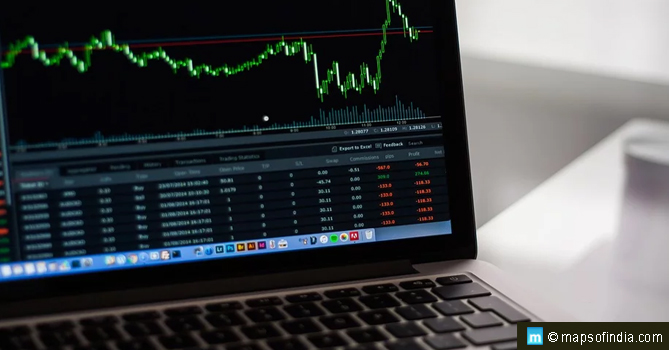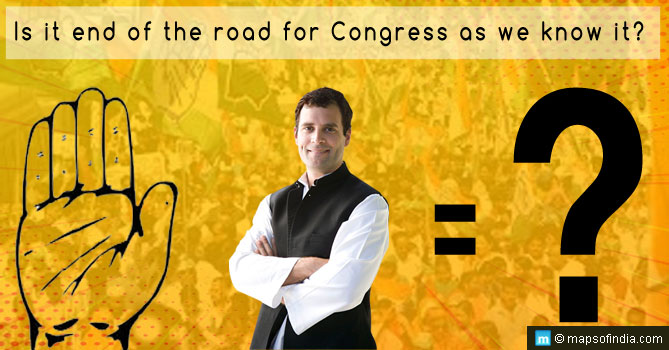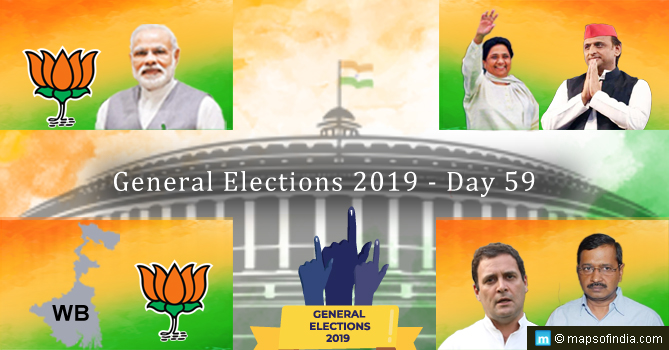
Politics influences the stock markets in the short, medium, and long term. However, the responses of the stock market to election results (general and assembly) vary based on the prevailing sentiments and expectations.
The sentiments of a common citizen differ from that of the investor’s. As the dates of the general elections draw closer, people have certain expectations from the next government and they vote accordingly. The same is true for assembly elections, which impact the lives of the residents of that specific state.
In both cases, the results when announced elicits a response from the investors, as they too have predictions and expectations. Broadly, there are two types of investors.
There are short term traders, including the day traders who speculate on the events of the day or the next few days, and then there are those traders who invest within a time frame of a week to a few months. Lastly, some investors invest money in stocks for the long term of 5-6 years and beyond. The latter doesn’t speculate or respond to the monthly or even yearly policy changes unless they impact the long term outcomes.
Long term investors may or may not react in the immediate aftermath of the election results. Many may wait and watch policy decisions taken by the new government before taking up revised investment positions. They review their portfolios as economic and political situations evolve through the five-year term.
Long term investors who invest for 6-10 years or more do not make drastic changes to their investment portfolios. It’s the short term to medium term investors who make changes according to emerging situations and events.
Stock markets take cues from political developments that impact policies and market sentiment. These are in response to both domestic and international developments.
Today, India is more integrated with the international markets than it was two decades ago, and emerging positions in the international markets have an impact on how the Indian market opens its positions daily. It’s a constant process.
However, long term geopolitics and trade relations also have an impact.
For instance, the 2008 Subprime Mortgage crisis had a major impact on India and the Indian stock markets. The Indian stock markets witnessed a Bull-run between 2004 and 2007 before the 2008 crisis made its impact.
By the end of March 2007, the Sensex (India) touched 13,072, and by January 2008 rose to 20,873. Once the Subprime crisis hit the US, foreign investors began withdrawing money from India and began moving it overseas. By October 10, 2008, the losses touched Rs 250,000 crore, financially ruining several investors.
The above is an example of how events triggered in the international markets impact India. Another example is the current on-going trade tensions between the US and China which are spooking global markets and driving down sentiments. Many countries have been affected; India is no exception. The falling exports along with the dipping domestic manufacturing is a result of international economic conditions.
However, due to other factors, strangely, the stock markets are rising despite all macro-indicators pointing to negative charts. The Sensex, as on November 26, 2019, closed on 40,821; a 12.78 per cent climb over 36,194, recorded on November 30, 2018.
Elections, especially general elections, also impact the stock markets.
Take a look at how the Indian stock markets responded to several general elections results.
2004 General Elections
The results saw the Atal Bihari Vajpayee-led NDA government lose to the UPA, contrary to expectations.
Election results were announced on Thursday of May 13, 2004. The Sensex closed the day at 5,399 points.
On Friday, May 14, the markets reacted negatively to the election results and fell 6 per cent to close at 5,069. On Monday, May 17, the next trading day, the markets fell 565 points, recording the third-worst fall ever, to close at 4,505. The markets had given a big thumbs-down to the UPA government.
However, with Dr Manmohan Singh taking over as PM, the sentiments turned massively positive, and by December 27, 2004, the Sensex touched 6,513.
2009 General Elections
The markets had predicted that the UPA would lose, but their massive margin of victory took everyone by surprise. The markets responded positively and this led it to hit the upper circuit, causing a stop to trade for the first time in Indian trading history.
On May 15 (Friday), the Sensex closed on 12,173. Since the results were announced on Saturday (Sensex remains close on Saturday and Sunday), the next trading day being a Monday, the BSE rose 17.34 per cent to close the day at 14,284.
2014 General Elections
Anti-incumbency was strong against the UPA II government, and a BJP-led NDA won as expected. Narendra Modi-led NDA scored big, and the Sensex was expected to go north significantly. It did, and the Sensex rose by 1,470 points to touch an all-time high of 25,375.
But, early profit booking drove down the Sensex, and the day closed with Sensex at 24,121, marginally higher than the previous day’s (May 15 ) close at 23,905.
2019 General Elections
The Narendra Modi-led NDA was expected to win, and the markets seemed all geared up to respond positively to a second term. The Sensex opened at 39,815, and once the results began pointing to an NDA victory, the markets shot up by 1,000 points to touch 40,000 for the first time.
However, despite a strong positive sentiment prevailing among investors, profit booking drove the markets down, falling 1,300 points from the day’s high. Sensex closed 298 points lower at 38,811.
Certain events like the abrogation of Article 370, demonetization and the Uri Surgical strike have all seen a response from the markets, which follow both politics and policy announcements very closely.





